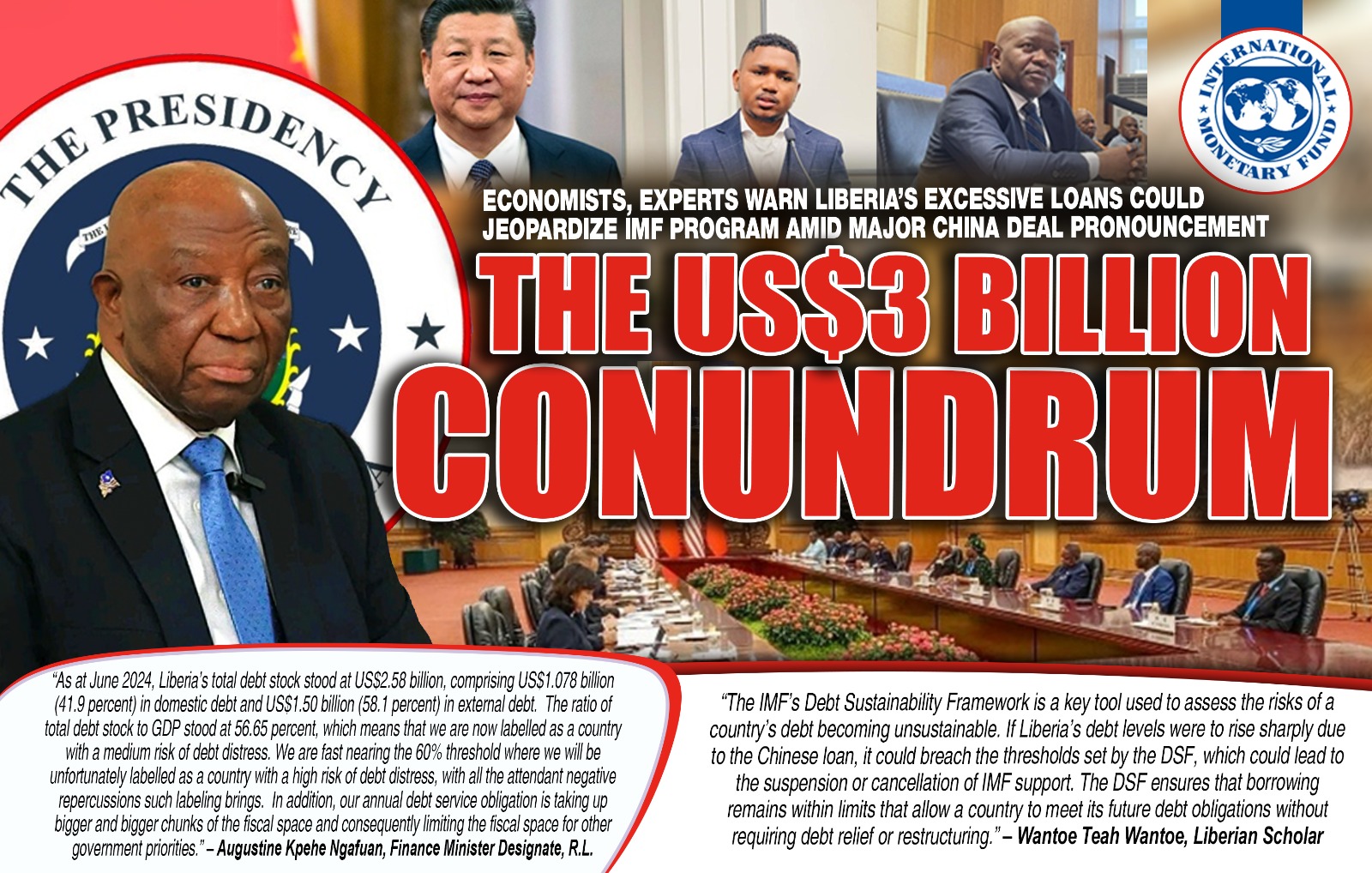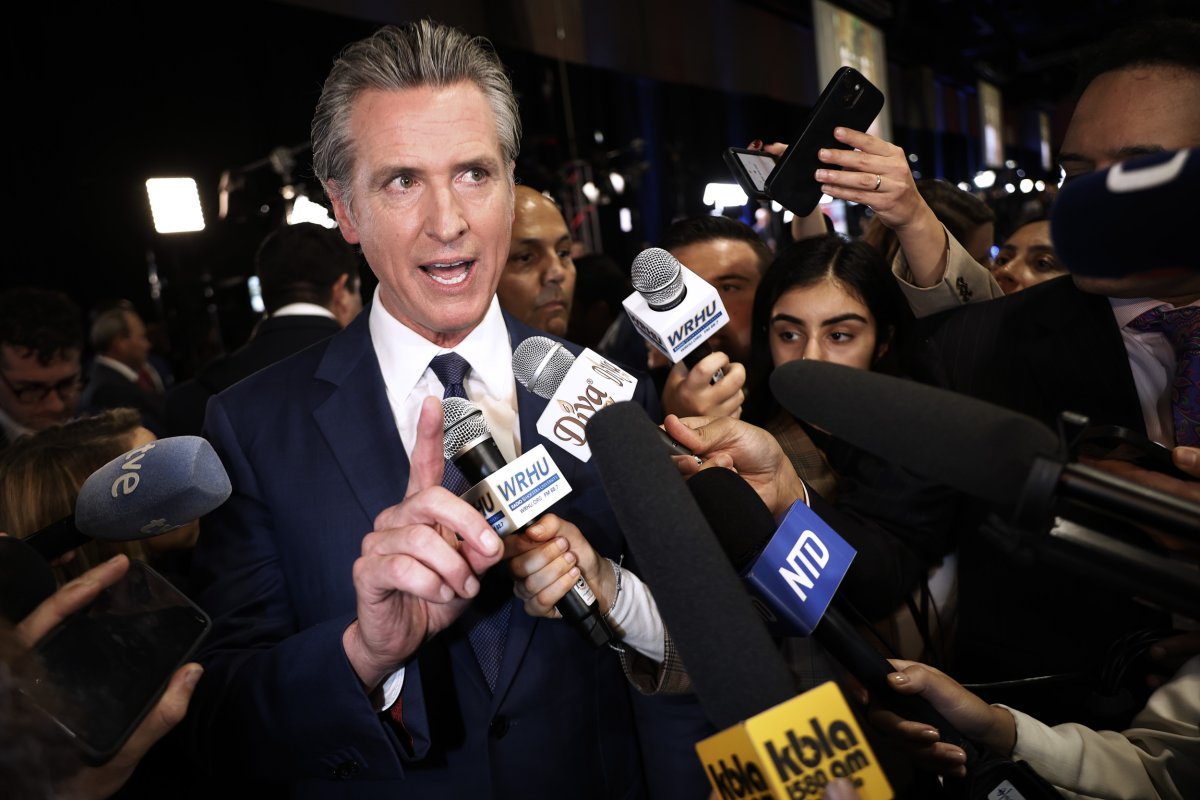
Monrovia – As the Boakai-Koung administration reaches the halfway mark of its first year in office, it continues to seek financial support for its ambitious development agenda, with a particular focus on Asia as a key source of investment. By Gerald C. Koinyeneh, [email protected] At the Forum for China-Africa Cooperation (FOCAC) in Beijing, Liberia and China signed several landmark agreements, including a memorandum of understanding (MOU) with SUMEC International for the construction of an oil refinery in Buchanan, valued at billions of U.
S. dollars, according to the Executive Mansion. Additionally, Chinese President Xi Jinping committed $100 million in road financing to Liberia, with negotiations to follow between the two countries.

Liberia’s rising debt While these deals have been applauded by administration officials and supporters, concerns are rising over Liberia’s increasing debt burden. During his recent confirmation hearing, Finance and Development Planning Minister-designate Augustine Kpehe Ngafuan cautioned against excessive borrowing, warning that Liberia’s debt was rising at an alarming rate. Ngafuan reminded lawmakers of the Ellen Johnson Sirleaf administration’s success in achieving debt relief under the Heavily Indebted Poor Countries (HIPC) Initiative.
By 2010, Liberia had secured the cancellation of nearly $5 billion in external debt, restoring its ability to borrow responsibly. However, as of June 2024, the country’s total debt stock had risen to $2.58 billion, comprising $1.
078 billion in domestic debt and $1.50 billion in external debt. The debt-to-GDP ratio now stands at 56.
65 percent, placing Liberia at medium risk of debt distress. Ngafuan warned that Liberia is nearing the critical 60 percent debt threshold, which would mark the country as being at high risk of debt distress, a designation that could have serious economic repercussions. He stressed the importance of disciplined and transparent debt management.
“Therefore, prudent and disciplined debt management is not an option; it is a must and I am going to treat it as such. Contracting new debt is not bad per se; what is key is what we are contracting debt for and at what terms. We cannot afford to contract debt at unfavorable terms and with limited rates of economic return,” he said.
He also highlighted the growing burden of debt service obligations, which are increasingly consuming government revenue and limiting fiscal space for other priorities. Ngafuan emphasized the need for prudent management, transparency, and accountability in debt repayment. Rising Debt: Adverse to IMF Program Echoing Ngafuan’s concerns, young Liberian scholar Wantoe Teah Wantoe warned that Liberia’s rising debt could jeopardize its ongoing program with the International Monetary Fund (IMF).
He explained if Liberia’s debt levels exceed the thresholds set by the IMF’s Debt Sustainability Framework (DSF), the country could lose IMF financial support. Wantoe stressed that IMF programs require strict compliance with fiscal discipline and debt sustainability, and any significant deviation from these conditions could lead to a suspension of assistance. Liberia is currently working to restore its relationship with the International Monetary Fund (IMF).
Last month, IMF staff and Liberian authorities reached a staff-level agreement on a comprehensive set of policy priorities aimed at securing a new 40-month Extended Credit Facility (ECF) arrangement. The proposed US$209 million arrangement is pending approval by the IMF Executive Board, with discussions scheduled for September 25. If approved, the ECF would support Liberia’s efforts to implement key policies focused on restoring fiscal sustainability, rebuilding external reserves, ensuring financial sector stability, and advancing a reform agenda to address governance and corruption challenges.
Questions Over SUMEC International Deal Meanwhile, renowned economist Samuel Jackson has raised concerns about the MOU with SUMEC International Technology Co., Ltd. Jackson pointed to the firm’s controversial background, which has alarmed some industry experts and international observers.
He also questioned the choice of Buchanan as the site for the refinery project, noting its strategic importance as one of Liberia’s key ports. Jackson’s concerns come amid growing global scrutiny over China’s influence on the sovereignty and financial stability of African nations. With China’s increasing involvement in Liberia’s infrastructure development, some worry about the long-term implications of these agreements on the country’s debt sustainability and economic independence.
As Liberia continues to navigate its financial challenges, both government officials and experts are calling for a cautious approach to borrowing, ensuring that new loans are sustainable and tied to projects that will yield significant economic benefits..










